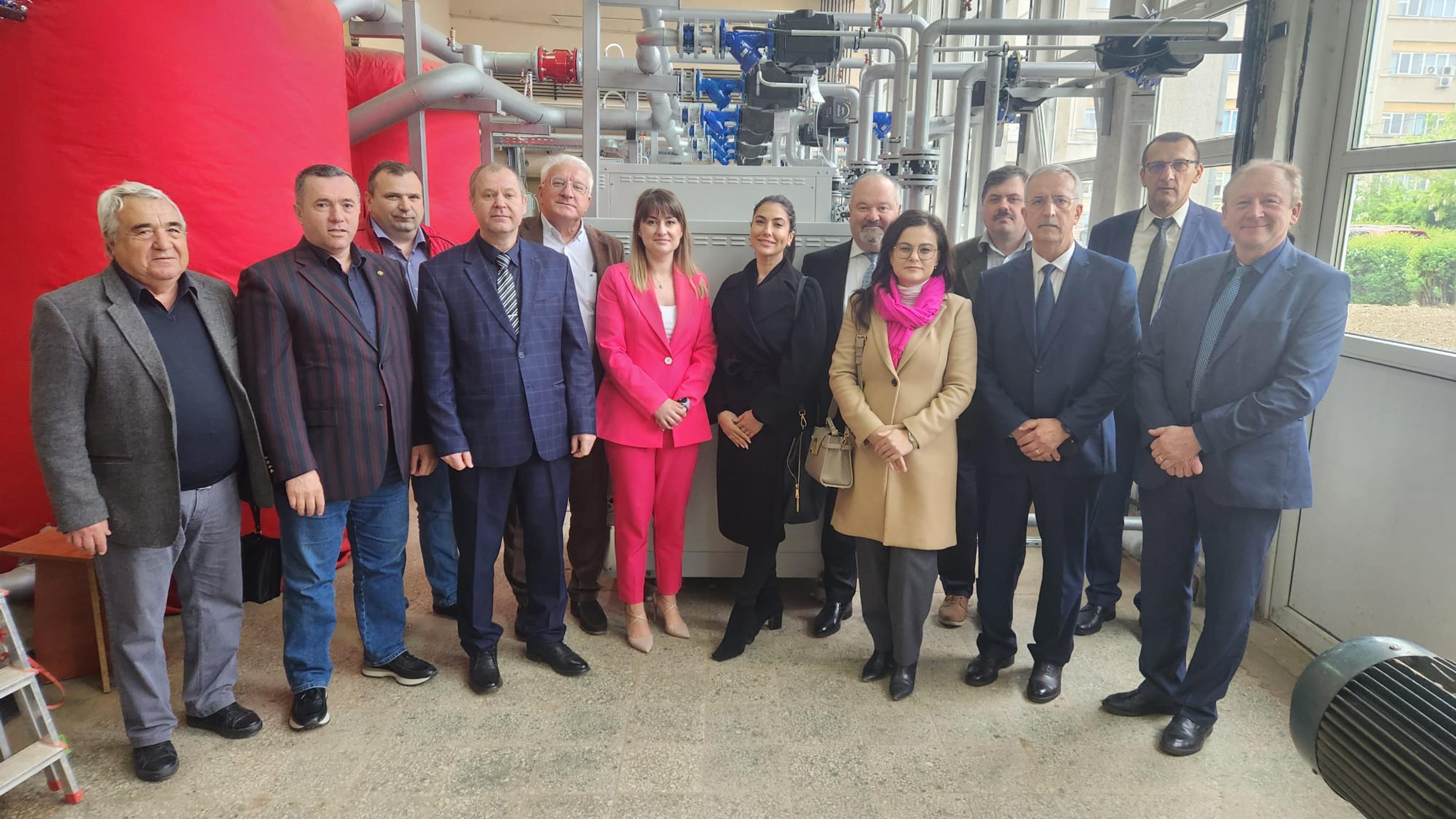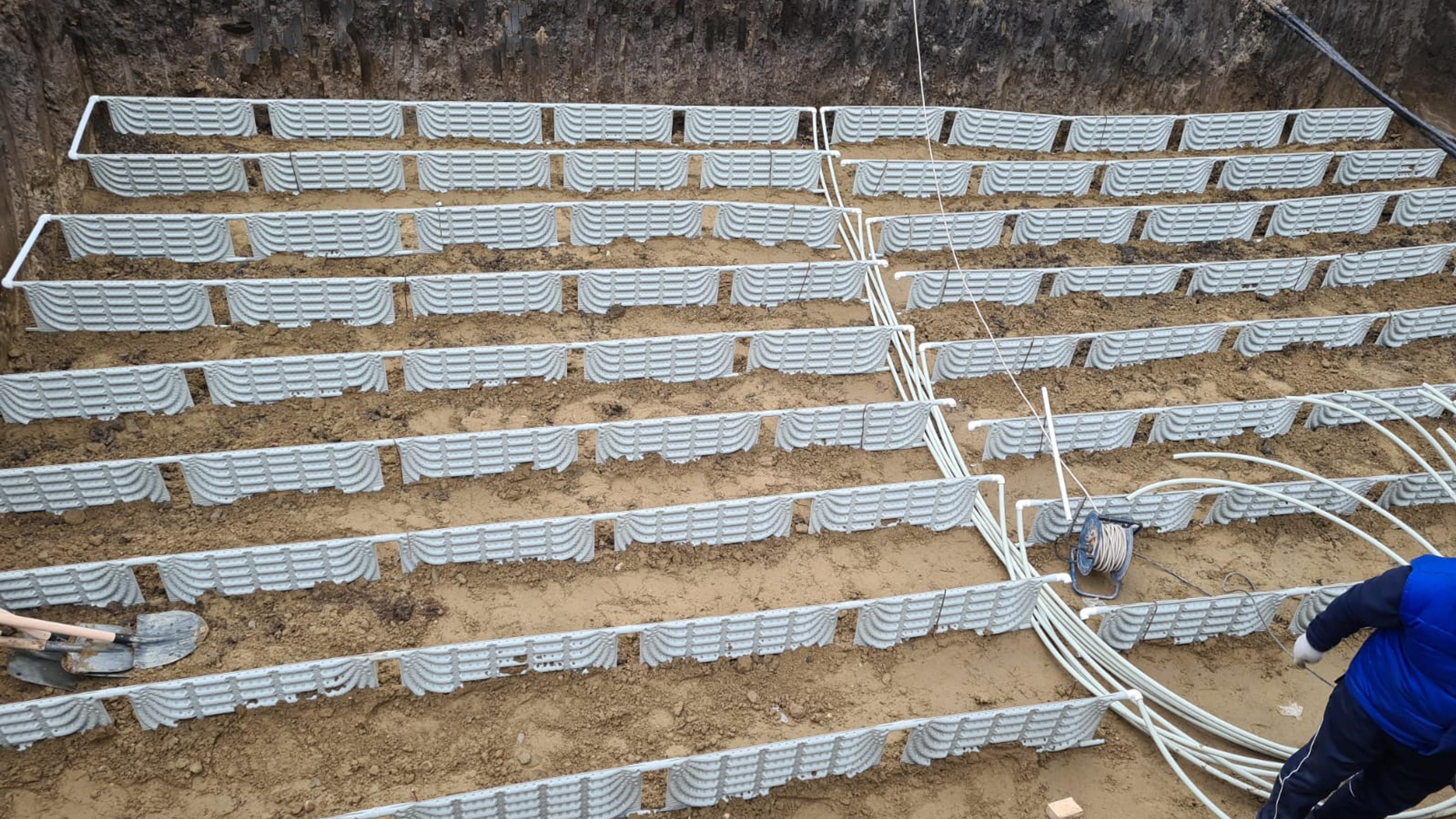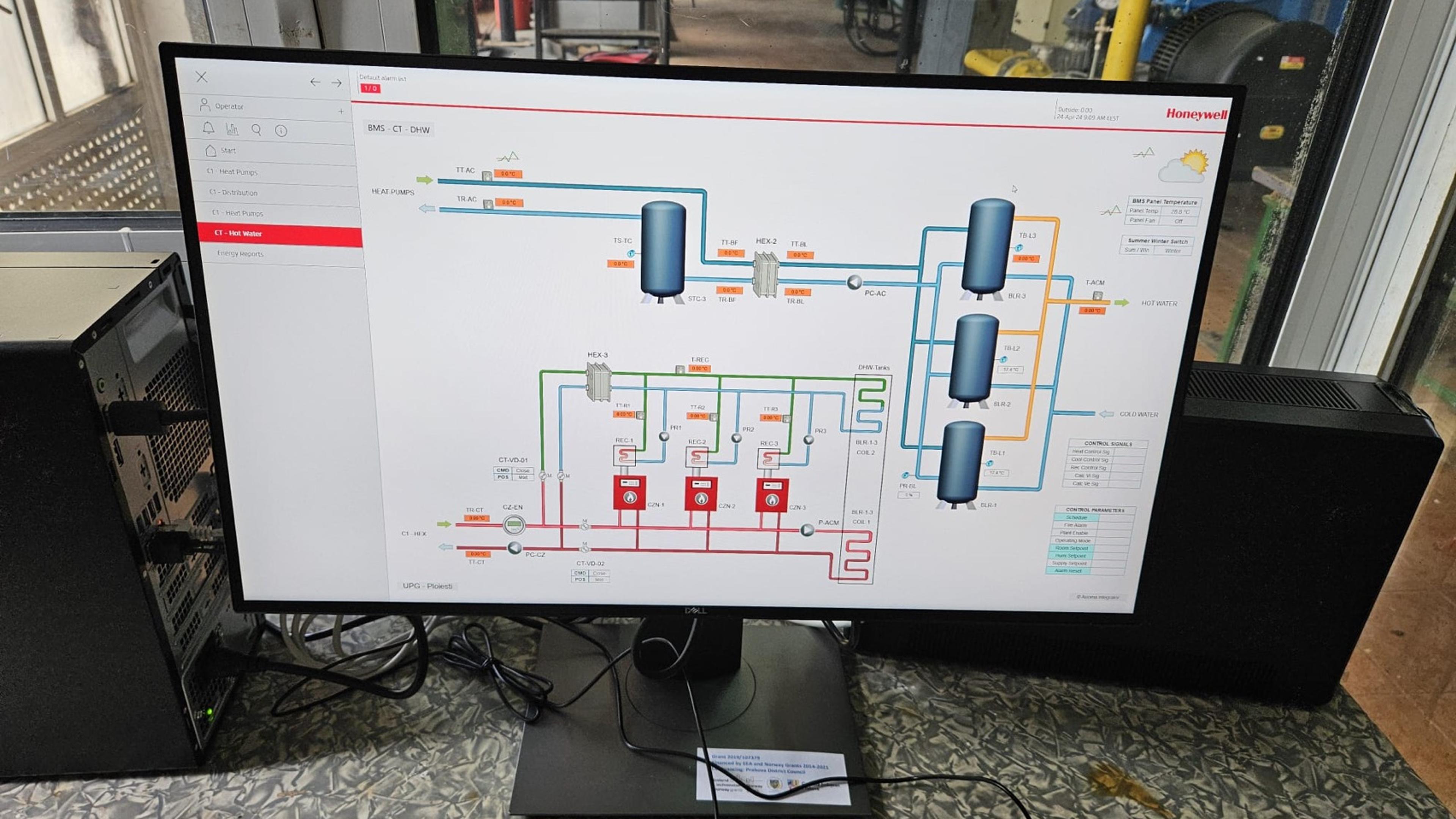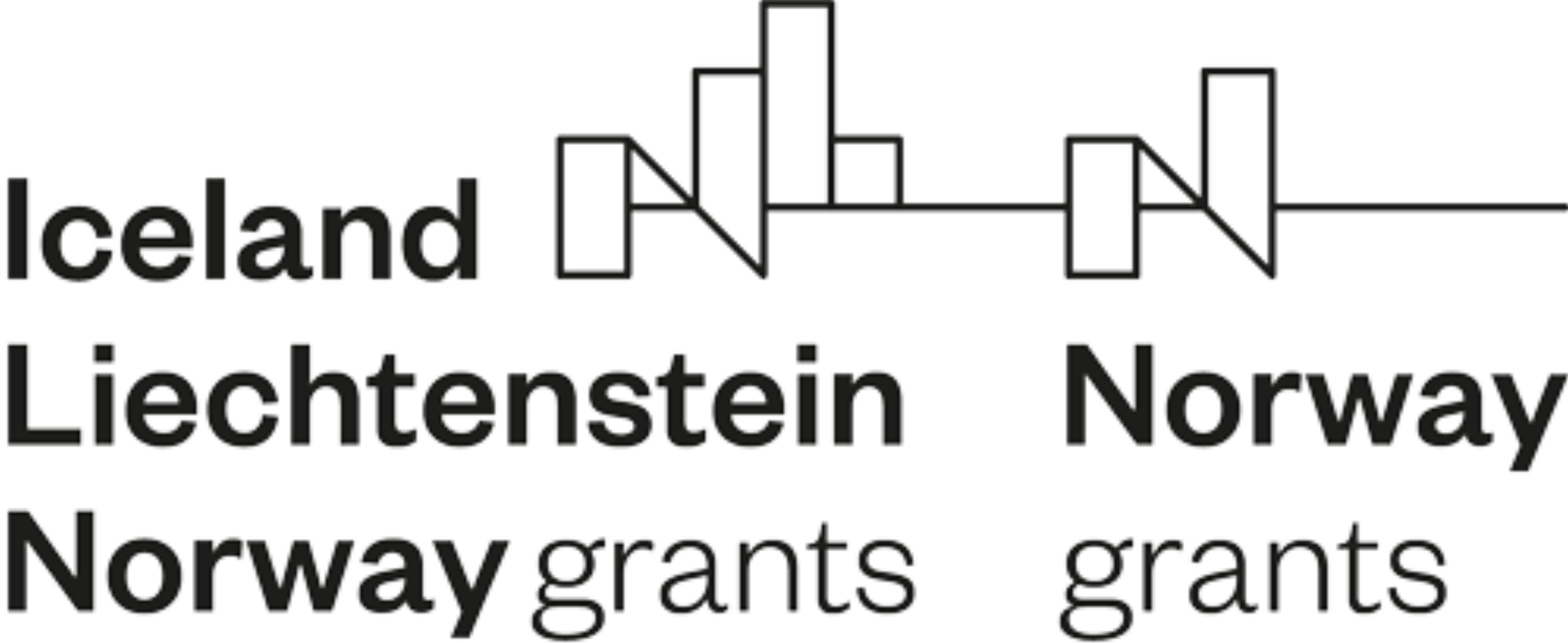Geothermal Energy in Romania – Harnessing the Power of the Earth
 © Innovation Norway
© Innovation NorwayIts geothermal potential is largely concentrated in the areas of the Eastern Carpathians, the Transylvanian Basin and the Black Sea Coast, which are at different stages of development. Currently this type of renewable energy is mostly used for district heating systems and in spas. There is, however, a growing interest in harnessing this power to produce electricity. While geothermal energy remains a relatively underdeveloped resource, there is both potential and willingness to develop its use and expand production to full capacity. The Romanian Government, the European Union and EEA and Norway Grants are all involved in supporting this further through research and investment. Norway, Iceland and Liechtenstein, through the EEA and Norway Grants, have supported the development of geothermal solutions in both private and public institutions with grants totalling €8 million across nine different projects.
Harnessing the Power of the Earth

Romania has several geothermal areas. It has already been employed in the country for decades, primarily for use in space heating, greenhouse heating, aquaculture and balneotherapy. Notable fields include Oradea, in the western part of Romania, which is home to one of the most significant geothermal fields in the country. The geothermal waters here have temperatures ranging from 70°C to 105°C, making them suitable for various applications, including district heating and balneotherapy. It is home to Felix Spa, which is renowned for its therapeutic geothermal waters, attracting visitors from across Europe for wellness treatments. Another notable area is Timisoara, which has utilized geothermal energy for district heating and industrial processes. Both areas have established district heating systems in residential and commercial buildings using geothermal energy, which is both sustainable and cost effective while reducing dependence on fossil fuels.
In Oradea with the Oradea Municipality as project promoter, a solution was implemented which, using geothermal water, provided heating and hot water consumption for the Iosia-South neighbourhood. The solution has enabled the exploitation of the geothermal resource continuously, in the hot season, but also in the cold season, to provide heating and hot water consumption.
Oradea Municipality collaborated with Icelandic partner Mannvit for another geothermal project in Bihor where exploitation of a geothermal water field was developed. The Icelandic partner contributed to the project by transferring know-how in the specific field of geothermal energy use.
A third project in the region was to improve IRIS hotel’s energy efficiency by using local geothermal resources. The project promoter was a private business, the Iris Hotel in Oradea. The project aimed at increasing the general efficiency level at the company, along with promoting clean energy production to improve the eco-friendly approach of the company long-term as well as sustain low carbon emissions.
Arena Auto SRL is another private company which implemented a hybrid energy system geothermal and efficiency in their Toyota showroom in Ploiesti. The main objective of the project was to increase the energy security supply and energy and efficiency for Arena Auto showroom and service buildings, to decrease the CO2 emission by using energy produced from geothermal sources and not lastly to increase indoor comfort by installing geothermal pumps and monitoring the performance obtained.
SC TRANSGEX SA, a Romanian joint stock company, specialises in the extraction of geothermal water, which it uses for providing sanitary hot water and heat to the public increasing geothermal energy production for consumers in the tourist area of Tasnad City, far West in Romania. With over 50% of Romania's geothermal resources under its licenses, TRANSGEX SA plays a crucial role in the country's geothermal energy sector. This project aimed to increase the production of renewable energy from geothermal sources in Tasnad City while reducing CO2 emissions by drilling a new geothermal well and installing infrastructure. The project will provide thermal resources to private buildings, a swimming pool, and a future sports center for 25 years.
Breaza City Hall, acting as project promotor now benefits from a hybrid system using geothermal energy for its administrative building.

The technical solution implemented in a project on hybrid systems for energetic efficiency using geothermal energy applied in the University UPG Ploiesti campus, combines all types of heat pumps, heat exchangers for heat extraction from the environment and energy efficiency solutions with classic gas power plants. The general objective of the project was to install an innovative hybrid system that uses geothermal energy to increase energy efficiency in the University of Ploiesti campus. Gheorge Branoiu, PhD associate professor, says about the project that:
“The successful implementation of the project is a result of an excellent cooperation between the project management team and the representatives of Innovation Norway. We highly appreciate availability, flexibility, support, understanding and efficient communication throughout the Project implementation period of the case handler, Vidar Ellingsen, as well as Ana-Maria Axenia and the entire team of Innovation Norway.”
The Romanian Center-West region of the country, the region continues to withhold high geothermal potential. The Alba Iulia Municipality has implemented a project providing geothermal solutions in the Home for the Elderly in the city by installing geothermal pumps to replace the thermal distribution system and monitoring the performance obtained through an intelligent Building Energy Management System (BEMS).
The contribution of Icelandic expertise
Iceland has decades of experience in the field of geothermal energy. As one of the Donor States of the EEA Grants, Icelandic project partners contribute with knowledge, technology transfers and sharing of best practices in many of the geothermal projects financed under the Grants. The National Energy Authority in Iceland, Orkustofnun, is a Donor Programme Partner involved in three predefined projects on geothermal energy financed through the JCBF Bilateral Fund, with a total grant value of half a million EUR. One of the projects included a study visit for Romanian experts to Iceland, to learn more about their practices and foster bilateral cooperation between the geothermal nations under the predefined project GeoThermal Bridge Initiative. Read an article from a visit of Romanian experts in geothermal energy to Iceland here
Capacity-building
The geothermal projects do not only encompass physical solutions but also capacity-building for relevant groups and to raise awareness around geothermal opportunities.
The Environment Fund Administration implemented the project GENEX- Geothermal Energy Explorer – Capacity Building at the Government Level in the Area of Geothermal. Romania has various regions which have geothermal potential, but due to insufficient information and few professionals in the field, these areas are underexploited and in need of investments. The project invited all interested stakeholders (local and national authorities, academia and various experts) to a series of lectures/workshops, field visits and the opening and closing conferences, with the following main topics: (i) new findings in the research field of geothermal energy and the theoretical framework representing the base of geothermal energy investments and more importantly identifying areas prone for geothermal investments and (ii) the best practice examples which could be replicated in areas with geothermal potential in Romania.
The way forward
There are, however, still challenges and barriers. Despite the significant potential, the development of geothermal energy in Romania faces high initial investment costs, and the exploration and drilling of geothermal wells require substantial financial investment. The high upfront costs can deter private investors and limit the expansion of geothermal projects. Technical and logistical issues, such as geothermal energy extraction involve complex technology and infrastructure. Ensuring the efficient and sustainable operation of geothermal plants requires expertise and ongoing maintenance.
The regulatory framework for renewable energy, including geothermal, is still evolving in Romania. Streamlining permitting processes and providing incentives for geothermal projects would encourage more investment and development in this sector.
Ana-Maria Axenia, who handles several projects under the Energy Programme, highlights that Romania ranks among the top five European countries in terms of geothermal energy potential. She emphasizes that expanding this potential is promising, but it requires concerted efforts to develop regions known for their geothermal resources. Technology is most certainly evolving, and we are excited to see how the legislative framework develops accordingly, as it plays a crucial role in attracting investors and fostering bilateral projects.
With advances in technology and increasing awareness of the need for sustainable energy sources, geothermal energy could play a more significant role in the country's energy mix, energy diversification and energy security as well as in the green transition. While there are challenges to overcome, the benefits of geothermal energy, including reduced greenhouse gas emissions, lower energy costs, and enhanced energy security, make it a compelling option. By investing in research, technology, and supportive policies, Romania can harness its geothermal resources to create a cleaner and more prosperous future. Innovation Norway looks forward to seeing how the field of geothermal energy evolves further and helps facilitate the green transition in the country.
About the Energy Programme in Romania
The Energy Programme in Romania, managed by Innovation Norway, aims at less carbon intensive energy and increased energy security, providing grants for investments in renewable energy, energy efficiency and electrification of households. The Programme financing is ensured through the EEA and Norway Grants which contribute to social and economic development in 10 European countries, including Romania.
About Innovation Norway
Innovation Norway is the Norwegian Government's most important instrument for innovation and development of Norwegian enterprises and industry. Innovation Norway supports companies in developing their competitive advantage and to enhance innovation. In Romania, Innovation Norway is managing two EEA and Norway Grants Programmes: the Energy Programme and the SMEs Growth Programme.
Written by:
Ana-Maria Axenia,
Adviser, Innovation Norway Bucuresti Office
Mia Kristine Martinussen,
Trainee, Innovation Norway Bucuresti Office
